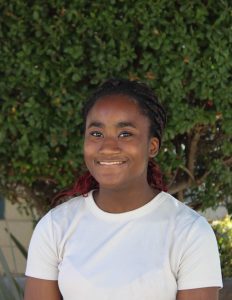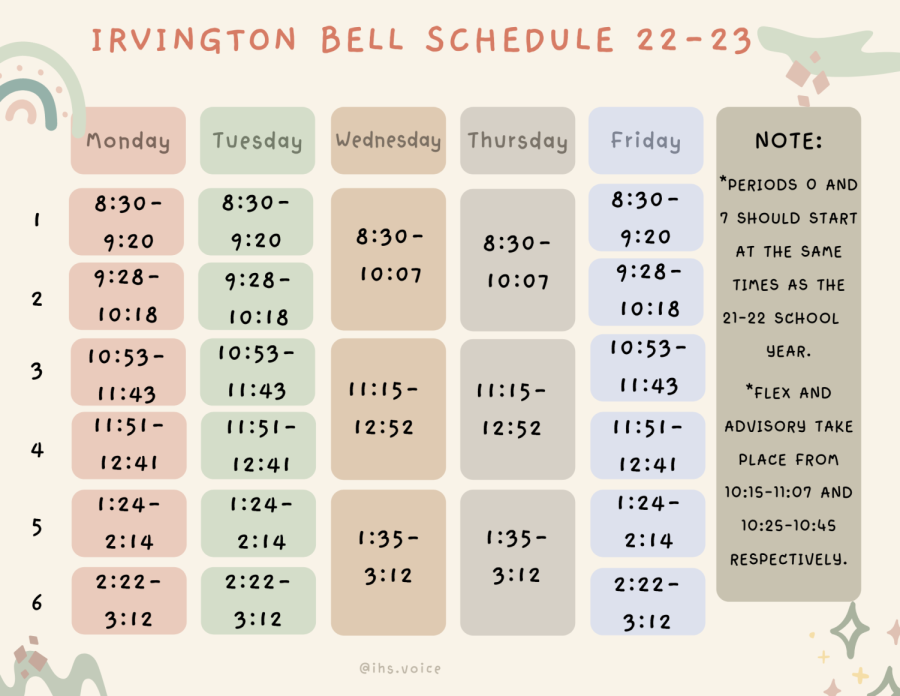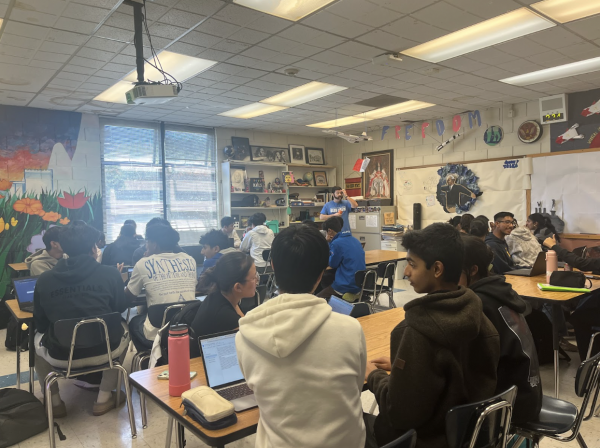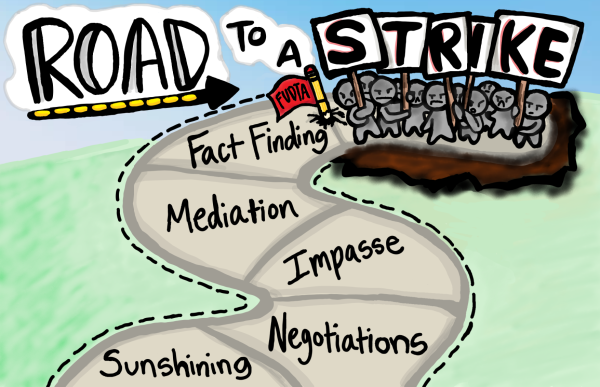Irvington Implements Two Block Bell Schedule for 2022-23 School Year
Irvington’s new bell schedule features two block days as opposed to this year’s four, while FLEX remains at two days per week.
In the week before spring break, the 2022-2023 school year bell schedule for Irvington High School was finalized based on staff ballot results. The new schedule includes 2 block and 3 advisory days while passing period and lunch remain 8 minutes and 35 minutes respectively. The first day of school will not be a minimum day and will start at 8:30 am.
This decision was made largely at the request of Math and English teachers, who felt that two block days forced them to cram multiple lessons in one day, which made students less engaged with the material. The schedule also provided them with less time to help struggling students.
“I feel like I don’t get the chance to follow up with my students as much,” said 11th-grade Advanced Placement and College Prep English teacher Liz O’Connor. “I’ll teach a lesson and realize there’s something I need to go over some more, but then I don’t see them again for two days, or I don’t see them again until the next week. For struggling students, it’s particularly important to be able to keep building on what they’re working on.”
Students, however, do not share the same sentiment. Many felt that the 4 block day schedule was more beneficial because it gave them more time between classes, which allowed for more time to complete homework.
“A teacher could tell me on Tuesday that we were having a test on Thursday, and then I would have all the time between Tuesday and Thursday to study for that test,” stated Ayush Patel (11). “Also, long advisories are very good for getting a lot of work done.”
Additionally, 3 advisory days were voted in favor of 4 FLEX days as staff believed advisory served to establish genuine student-teacher connections.“I think most [teachers] prefer advisory over FLEX because you build relationships with students, but only if both parties are willing to build that relationship,” said Algebra 1 and Precalculus teacher Mr. Johnson. “I do invite students to ask me questions about math, but generally, I think students like to have a chill period and to have a break from the stress of school life here at Irvington, so I’m inclined to go along with that.”
However, a majority of students campaigned for FLEX periods because they give more flexibility to students compared to advisory. Students found FLEX far more practical in actually developing a relationship with their teachers. “I could choose which teachers I wanted to go to if I wanted more help with a concept,” explained Michael Zheng (11). “With advisory, the work period was helpful, but I feel like it would be more practical to have it as FLEX work periods to give students more freedom.”
Other teachers, such as science teachers, benefited from this year’s block schedule. Ms. Koehler, an AP Biology and Environmental Science teacher, explained, “I feel it provided me more flexibility as a science teacher to do labs more easily.” The 90-minute classes allotted time for longer, more complicated labs that would be unable to be performed on normal days. However, the four block periods also took a toll on teachers. “I felt with having more block days, there was more of a pressure on me to keep my class entertained which was kind of exhausting.”
While students feel that the change back to two block days a week will be disadvantageous, most teachers agree that students will adapt accordingly to the upcoming schedule.










